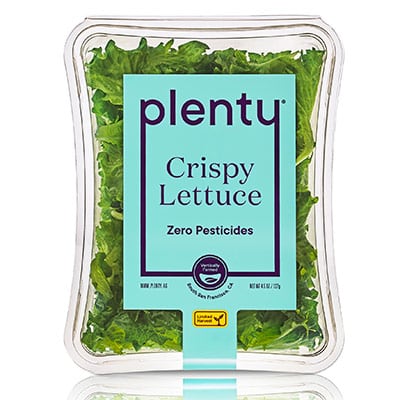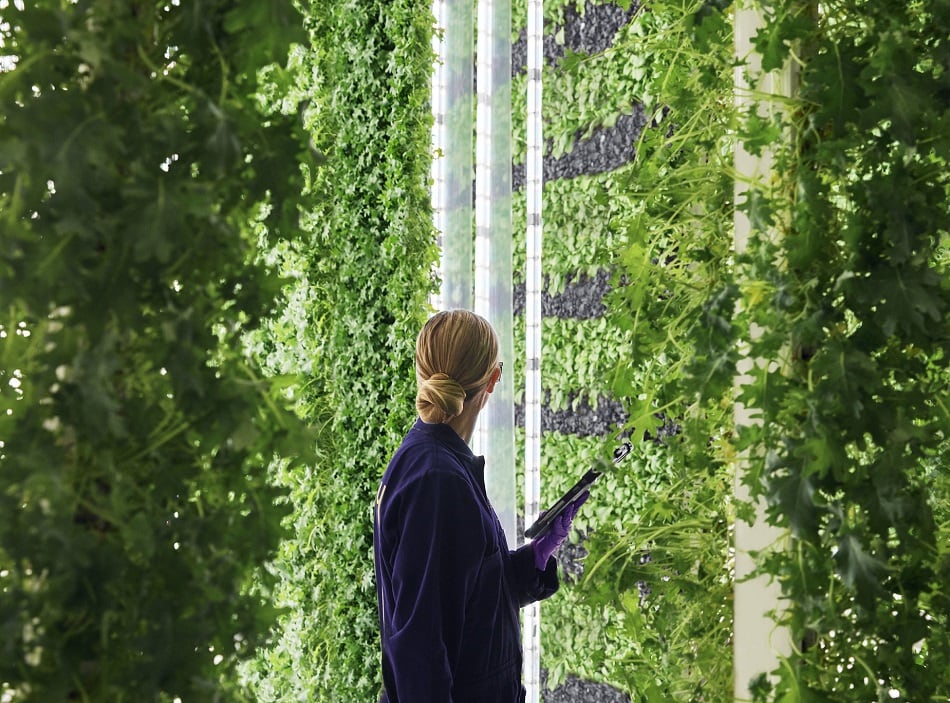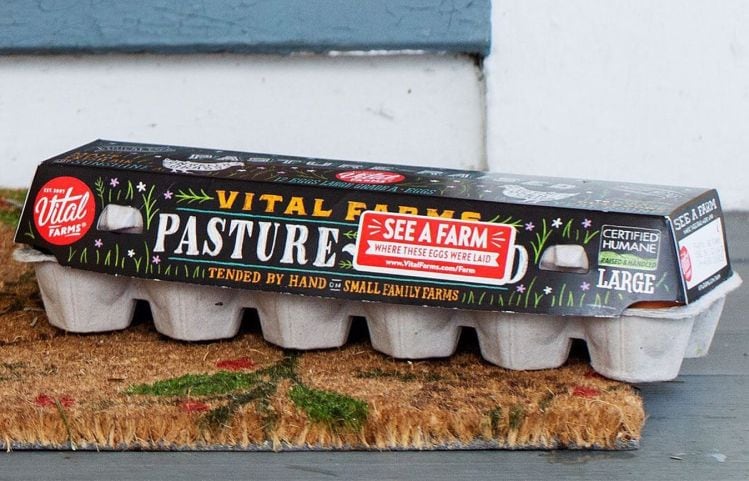Prior to its distribution partnership with Albertsons, Plenty’s leafy green products were available in the San Francisco Bay Area at select Safeway, Andronico’s, and Whole Foods locations as well as at local retailers such as Good Eggs, Bi-Rite, and Roberts.
Albertsons plans to carry four Plenty products initially: baby arugula, baby kale, crispy lettuce, and mizuna mix.

“This is an important milestone for the Plenty team, and we look forward to bringing Albertsons Cos. customers the best-tasting and cleanest greens they’ve ever eaten,” stated Matt Barnard, CEO of Plenty.
Plenty keeps up with retailer demand
Plenty’s point of differentiation in its indoor vertical-farming methods lies in its proprietary custom spectrum LED lights which allow the company to choose specific light spectrums and intensity to produce the best-tasting and nutrient-rich greens.
The company’s indoor vertical farm based in San Francisco delivers produce all year long and can grow 1 million plants at a time and process 200 plants per minute using automated processes, data analytics, and machine learning.
“What makes us unique is we use this custom spectrum to coax out the best, natural flavors of the plants, making them surprisingly flavorful,” Camille Kolstad, director of business development and sales at Plenty, told FoodNavigator-USA.
Because of its automated and efficient operations, Plenty was able to meet the heightened demand from retailers during the COVID-19 crisis when much of the industry was experiencing disruption along the food supply chain.
“Plenty was able to ship 3x more produce to retailers and non-profits during the pandemic. Because we partner locally, we did not have supply chain disruptions. Our farm is also highly automated, which meant we did not have labor shortages,” said Kolstad.
“All of these unique Plenty features meant we kept retail shelves stocked and delivered healthy greens to community members who lost their jobs as a result of COVID.”
WATCH: Plenty's automated indoor vertical farm 'Tigris'
‘Growing more leafy greens indoors is not just about protecting the planet’
Asked whether it’s feasible to one day grow all lettuce and leafy greens using indoor vertical farming methods, Kolstad explained that indoor vertical farms are part of the solution to feeding a growing population sustainably, but equally important, vertical farms have the power to democratize access to healthy, local, and pesticide-free food.
“There will always be a need for the field. But we can mitigate risks to crops from weather, climate and pests by growing indoors. We can feed a growing population without cutting down trees, using up more land or depleting precious water resources,” Kolstad said.
“But growing more leafy greens indoors is not just about protecting the planet. It’s also about making it easier and more enjoyable to eat healthy.”
Globally, one in five deaths are related to poor diet and nutrition, added Kolstad.
In the US, 12.2% of adults meet the daily fruit intake recommendation and 9.3% of adults meet the daily vegetable intake recommendation in 2018, according to a CDC report.
“By growing healthy food that is flavorful and pesticide-free, we can make eating healthy foods snackable and delicious. That’s Plenty’s mission – to improve the lives of people, plants, and the planet.”




